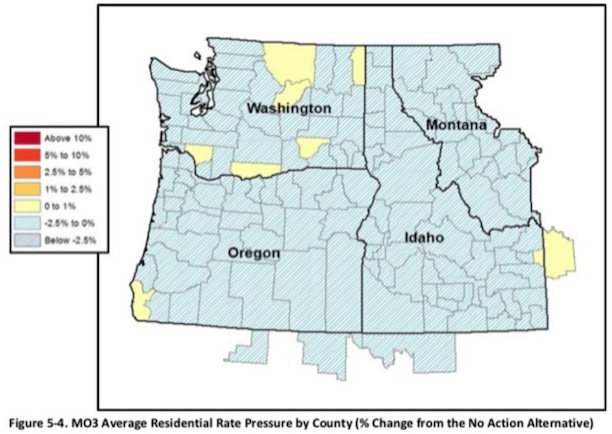forum
library
tutorial
contact

Oregon, Washington Can
Sue Trump Over ESA
by Don Jenkins
Capital Press, May 19, 2020
|
the film forum library tutorial contact |

|
Oregon, Washington Can
by Don Jenkins
|
The potential economic harm gave the states standing to sue, Tigar ruled.
 Oregon, Washington and 17 other states can sue the Trump administration over revisions to the Endangered Species Act, a federal judge ruled Monday.
Oregon, Washington and 17 other states can sue the Trump administration over revisions to the Endangered Species Act, a federal judge ruled Monday.
The administration had moved to dismiss the suit, arguing the reforms, enacted in October, hadn't harmed the states. U.S. District Judge Jon Tigar in Oakland denied the motion, ruling that the changes could force states to spend more money on conservation.
The potential economic harm gave the states standing to sue, Tigar ruled.
The ruling allows a lawsuit that involves a majority of states to move ahead in the U.S. District Court for Northern California. While 19 states, the District of Columbia and New York City are suing to repeal the ESA reforms, 13 states, including Idaho, have intervened in the suit to support the Trump administration.
The American Farm Bureau, National Cattlemen's Beef Association, the Washington Cattlemen's Association and several other farm groups also have intervened to uphold the reforms.
In two other rulings issued Monday, Tigar dismissed a pair of lawsuits brought by environmental and animal-rights groups. Unlike states, according to Tigar, the private groups did not show they might have to divert resources because of the EPA reforms.
One lawsuit was filed by the Center of Biological Diversity, Defenders of Wildlife, Natural Resources Defense Council, National Parks Conservation Association, WildEarth Guardians and the Humane Society of the United States.
The other dismissed suit was filed by the Animal Legal Defense Fund.
Under the ESA reforms, the U.S. Fish and Wildlife Service will write recovery plans for each new threatened species, rather than giving it the same blanket protection as an endangered species. The agency says it anticipates landowners will be more motivated to nurture a threatened species and keep it from sliding into endangered status.
The revisions also include changing how USFWS designates habitat critical for recovery.
The agency says it will look first to preserve land the species lives on before regulating where the species isn't found. Unoccupied land could still be designated as critical if the species needs more room to survive.
Listing decisions still will be made based solely on science, even when a report is done on the economic costs. The reports will inform the public, according to USFWS. Critics say knowing the costs will influence the agency.
The USFWS and National Marine Fisheries Service say the reforms carry out President Trump's executive order to eliminate unnecessary regulatory burdens.
California, Massachusetts, Maryland, Colorado, Connecticut, Illinois, Michigan, Minnesota, Nevada, New Jersey, New Mexico, New York, North Carolina, Pennsylvania, Rhode Island, Vermont and Wisconsin are the other states suing the Trump administration.
Alabama, Alaska, Arizona, Arkansas, Kansas, Missouri, Montana, Nebraska, North Dakota, Utah, West Virginia and Wyoming are the other states supporting the administration's ESA reforms.
learn more on topics covered in the film
see the video
read the script
learn the songs
discussion forum
